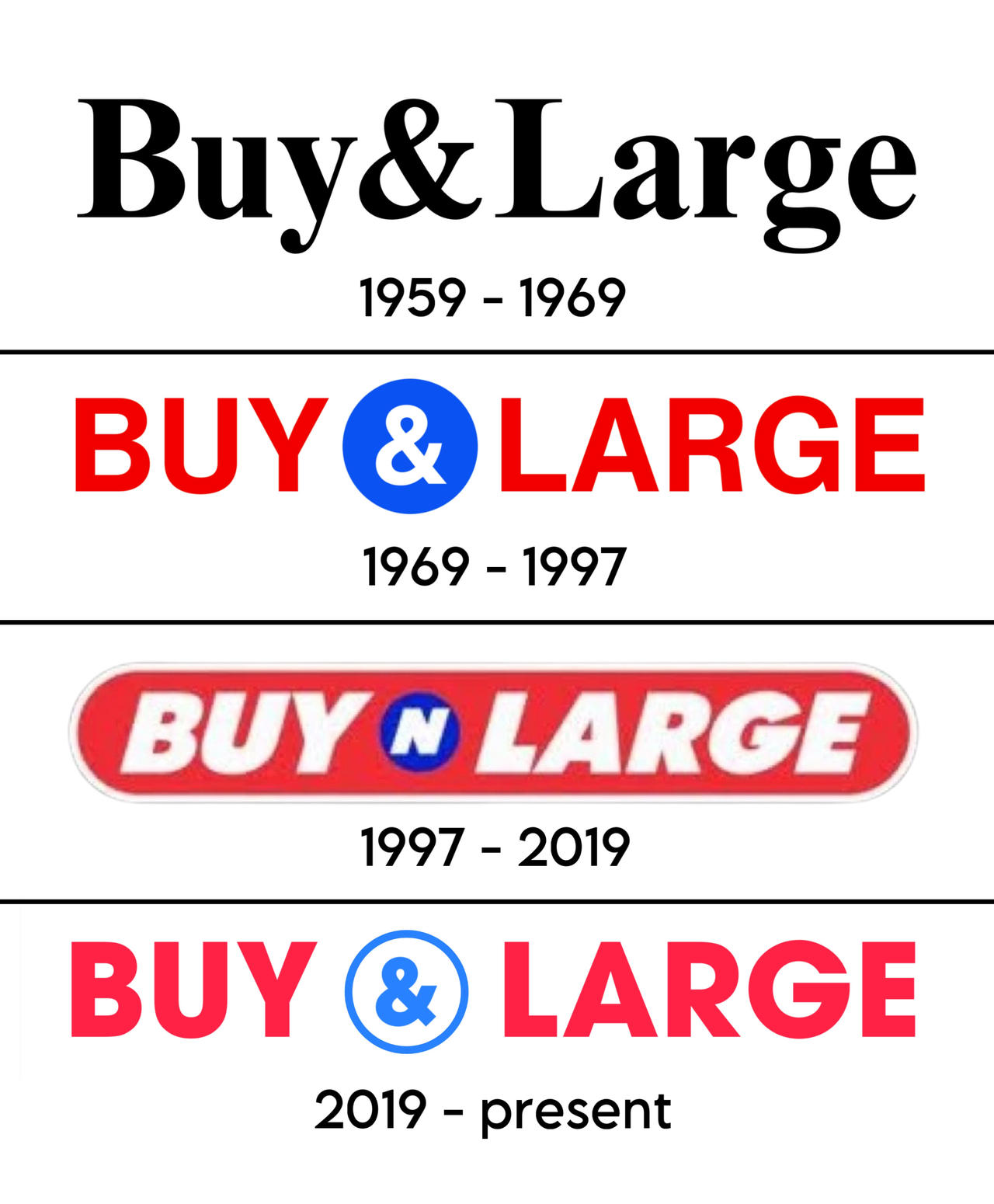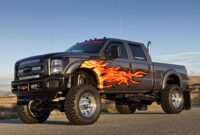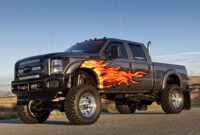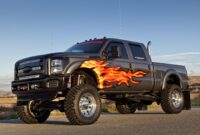Buy Used U-Haul Trucks: Your Comprehensive Guide to Smart Acquisition sale.truckstrend.com
Introduction: Unlocking Value on Wheels
In today’s economy, finding cost-effective solutions for transportation, delivery, or even mobile business ventures is paramount. For many, the answer lies not in brand-new vehicles, but in the robust and readily available market of pre-owned fleet trucks. Specifically, purchasing a used U-Haul truck has emerged as a surprisingly popular and practical option. These iconic orange-and-white workhorses, once rented by the hour for countless moves, are regularly retired from U-Haul’s vast fleet and sold directly to the public. Buying a used U-Haul truck offers a unique blend of affordability, proven reliability (due to diligent fleet maintenance), and surprising versatility, making it an attractive proposition for individuals, small businesses, homesteaders, and even those looking for a platform for creative conversion projects. This comprehensive guide will delve into every aspect of acquiring a used U-Haul truck, helping you navigate the process from initial consideration to driving off with your new-to-you vehicle.
Buy Used U-Haul Trucks: Your Comprehensive Guide to Smart Acquisition
Why Buy a Used U-Haul Truck? Unpacking the Benefits
The decision to invest in a used U-Haul truck is often driven by a compelling set of advantages that cater to a wide range of needs. Understanding these benefits can help solidify your decision.
- Cost-Effectiveness: This is arguably the biggest draw. Used U-Haul trucks are significantly more affordable than comparable new commercial vehicles. The initial depreciation has already occurred, meaning you get more truck for your money. This allows businesses to allocate capital elsewhere or individuals to acquire a valuable asset without breaking the bank.
- Proven Reliability and Maintenance: U-Haul operates one of the largest and most rigorously maintained fleets in North America. Their trucks undergo strict preventative maintenance schedules and regular inspections to ensure they are safe and operational for renters. While sold "as-is," this history of professional care often translates to a more reliable used vehicle compared to an unverified private sale. Many trucks come with detailed service records.
- Variety of Sizes and Models: U-Haul’s fleet includes a wide array of vehicle types, from cargo vans and pickups to 10-foot, 15-foot, 17-foot, 20-foot, and 26-foot box trucks. This diversity means you can usually find a truck perfectly sized for your specific requirements, whether it’s local deliveries, hauling equipment, or even serving as a mobile workshop.
- No Commercial Driver’s License (CDL) Required: The vast majority of U-Haul box trucks (up to the 26-foot model) are designed with a Gross Vehicle Weight Rating (GVWR) that keeps them below the federal CDL threshold. This makes them accessible to a broader range of buyers without the need for special licensing.
- Ready for Immediate Use: These trucks are built for utility. With ample cargo space, sturdy construction, and often features like loading ramps, they are ready to go to work the moment you drive them off the lot.
- Conversion Potential: For the adventurous, U-Haul box trucks, particularly the larger models, offer an ideal chassis for conversion projects. They have been transformed into tiny homes, mobile offices, food trucks, and even overland expedition vehicles, providing a solid, enclosed base to build upon.

Understanding the U-Haul Sales Program: How It Works

U-Haul has a dedicated division for selling its retired fleet vehicles, ensuring a streamlined and transparent process.
- Direct Sales Model: U-Haul sells its trucks directly to the public, primarily through its U-Haul Truck Sales division. This eliminates middlemen and can simplify the purchasing experience.
- Online Inventory: The primary hub for browsing available trucks is the official U-Haul Truck Sales website (uhaul.com/trucksales). Here, you can filter by location, truck type, price, and even specific features. Listings often include photos, basic specifications, and sometimes mileage.
- Physical Locations: While browsing online is convenient, the actual trucks are located at various U-Haul centers and dealerships across the country. Buyers will typically need to visit a specific location to inspect and purchase a vehicle.
- "As-Is" Sales Policy: It’s crucial to understand that all used U-Haul trucks are sold "as-is, where-is." This means there is no warranty, expressed or implied, from U-Haul regarding the vehicle’s condition or future performance. Thorough inspection and due diligence on the buyer’s part are paramount.
- Financing Options: While U-Haul primarily facilitates cash or external financing, some locations may have partnerships with lenders, or you can secure a loan from your bank or credit union.

Choosing the Right Used U-Haul Truck for Your Needs
Selecting the ideal truck requires careful consideration of your specific requirements.
- Truck Sizes & Types:
- Cargo Vans (e.g., Ford Econoline, Chevy Express): Ideal for smaller deliveries, tradespeople, or personal hauling where a full box truck is overkill.
- 10-Foot Box Trucks: Perfect for light hauling, small business deliveries, or personal use. Easy to maneuver in urban environments.
- 15-Foot Box Trucks: A popular all-rounder, suitable for many small businesses, larger personal moves, or general hauling. Often comes with a low-deck and patented EZ-Load ramp.
- 17-Foot / 20-Foot Box Trucks: For larger hauling needs, more cargo volume. Good for medium-sized businesses or extensive personal projects.
- 26-Foot Box Trucks: The largest non-CDL option, offering maximum cargo capacity. Suited for large businesses, significant hauling, or ambitious conversion projects.
- Pickups: Less common in U-Haul’s sales inventory, but occasionally available.
- Engine Type: Most U-Haul box trucks are gasoline-powered (typically V8 engines like Ford’s Triton or GM’s Vortec). While diesel options are rare in their consumer fleet, they offer better fuel economy and longevity for heavy-duty, long-haul applications if you find one.
- Mileage and Condition: U-Haul trucks are fleet vehicles, so high mileage is common. Don’t let mileage alone deter you; focus on the truck’s overall maintenance history and current mechanical condition. A well-maintained truck with 200,000 miles can be a better buy than a neglected one with 100,000. Expect cosmetic wear and tear – dents, scratches, and faded paint are part of their history.
- Intended Purpose: Define what you’ll use the truck for. This will dictate the size, features (e.g., ramp needed?), and specific requirements. A mobile workshop will have different needs than a truck for hauling hay or a tiny home conversion.
The Buying Process: A Step-by-Step Guide
Purchasing a used U-Haul truck requires diligence, but following these steps can ensure a smooth transaction.
- Define Your Needs & Budget: Before looking, know what size truck you need and what you can realistically afford, including potential post-purchase maintenance, registration, and insurance.
- Research Available Inventory: Visit uhaul.com/trucksales and input your location. Browse listings, noting down models of interest, their prices, mileage, and where they are located.
- Inspect the Truck Thoroughly: This is the most critical step.
- Exterior: Check for significant rust (especially on the frame, wheel wells, and undercarriage), major body damage, tire condition (tread depth, uneven wear), and fluid leaks under the vehicle.
- Interior: Test all lights, gauges, wipers, horn, A/C, and heater. Check seat condition and overall cab cleanliness.
- Engine Bay: Look for fluid leaks, frayed belts, cracked hoses, and any signs of poor maintenance. Check fluid levels (oil, coolant, brake fluid).
- Test Drive: Take it for a good test drive. Listen for unusual noises (engine, transmission, differential), check braking performance, steering response, and acceleration. Test it at various speeds, including highway speeds if possible.
- Crucial Tip: Get a Pre-Purchase Inspection (PPI): Even if you’re mechanically inclined, hiring an independent, certified mechanic to perform a PPI is highly recommended. They can identify hidden issues you might miss, giving you peace of mind or grounds to walk away.
- Review Service Records: U-Haul maintains detailed service records for its fleet. Ask to see these. While not always available for every single truck, they can provide valuable insight into the vehicle’s maintenance history.
- Negotiate (Limited Scope): While U-Haul’s direct sales prices are often firm, it never hurts to politely inquire if there’s any flexibility, especially if you’re paying cash or find minor issues during inspection.
- Complete Paperwork & Payment: Once satisfied, you’ll complete the bill of sale and title transfer. Ensure all paperwork is correct before making payment. Be prepared for cash, cashier’s check, or an approved bank loan.
- Arrange for Pickup/Delivery: Drive your new truck home! Ensure you have temporary insurance coverage arranged before driving it off the lot.
Important Considerations & Potential Challenges
While buying a used U-Haul truck offers many advantages, it’s vital to be aware of potential challenges and additional considerations.
- "As-Is" Sale: Reiterate this point. You are buying the truck exactly as it is, with no recourse if issues arise post-purchase. This is why the PPI is so critical.
- High Mileage: Most U-Haul trucks will have high mileage. This isn’t necessarily a deal-breaker if the truck has been well-maintained, but it does mean that certain components (e.g., suspension, steering, exhaust) may be nearing the end of their lifespan and might require replacement sooner rather than later.
- Cosmetic Wear: Expect dings, scratches, paint fade, and interior wear. These are work trucks and have seen heavy use.
- Fuel Economy: These are large, heavy-duty vehicles, and fuel economy will not be stellar. Budget for higher fuel costs, especially with gasoline V8 engines.
- Insurance: Insuring a commercial-style vehicle can be more expensive than a regular passenger car, even if you’re using it for personal reasons. Get insurance quotes before buying.
- Post-Purchase Costs: Factor in the cost of registration, taxes, initial tune-ups, and any immediate repairs identified during your inspection.
- Removing Branding: If you plan to use the truck for personal or business use unrelated to moving, you’ll likely want to remove the prominent U-Haul branding. This can involve paintwork, vinyl removal, and detailing, which adds to the overall cost and effort.
Price Table: Estimated Costs for Used U-Haul Trucks
It’s important to note that used truck prices fluctuate significantly based on location, mileage, specific year, condition, and market demand. The prices below are estimates to provide a general idea and should be verified with current U-Haul listings.
| Truck Type | Typical Mileage Range (Miles) | Estimated Price Range (USD) | Key Features & Notes |
|---|---|---|---|
| Cargo Van | 100,000 – 250,000+ | $3,000 – $7,000 | Ford Econoline, Chevy Express. Ideal for light loads. |
| 10 ft Box Truck | 150,000 – 300,000+ | $4,000 – $8,500 | Ford E-Series Cutaway. Compact, easy to maneuver. |
| 15 ft Box Truck | 150,000 – 300,000+ | $5,000 – $10,000 | Ford E-Series Cutaway. Most popular, often with ramp. |
| 17 ft Box Truck | 175,000 – 350,000+ | $6,000 – $12,000 | Ford E-Series Cutaway. More cargo space. |
| 20 ft Box Truck | 175,000 – 350,000+ | $7,000 – $13,500 | Ford E-Series Cutaway. Significant cargo capacity. |
| 26 ft Box Truck | 200,000 – 400,000+ | $8,000 – $16,000+ | Ford E-Series Cutaway. Largest non-CDL option. |
| Pickup Truck | 100,000 – 200,000+ | $4,000 – $9,000 | Ford F-Series, Dodge Ram. Less common, check availability. |
Disclaimer: These are generalized estimates. Actual prices can vary significantly. Always check current listings on uhaul.com/trucksales for the most accurate pricing.
Frequently Asked Questions (FAQ)
Q: Are used U-Haul trucks reliable?
A: Generally, yes. U-Haul maintains its fleet rigorously to ensure they are safe for renters. However, they are high-mileage vehicles, so a thorough pre-purchase inspection is crucial to identify any specific issues with the truck you’re considering.
Q: Do used U-Haul trucks come with a warranty?
A: No, used U-Haul trucks are sold "as-is, where-is," meaning there is no warranty from U-Haul.
Q: Can I finance a used U-Haul truck?
A: U-Haul primarily accepts cash or external financing (e.g., a loan from your bank or credit union). Check with your local U-Haul Truck Sales center for any specific financing partnerships they might have.
Q: Where can I buy a used U-Haul truck?
A: The best place to start is the official U-Haul Truck Sales website: uhaul.com/trucksales. You can browse inventory by location and then visit the specific U-Haul center or dealership to inspect the truck.
Q: What should I look for when inspecting a used U-Haul truck?
A: Key areas include the frame for rust, tire condition, fluid leaks, engine noises, transmission shifting, brake performance, and all electrical components. Most importantly, arrange for a pre-purchase inspection by an independent mechanic.
Q: Do I need a CDL to drive a used U-Haul truck?
A: For the vast majority of U-Haul box trucks (up to the 26-foot model), a Commercial Driver’s License (CDL) is not required because their Gross Vehicle Weight Rating (GVWR) falls below the federal threshold. Always verify the specific truck’s GVWR if you have concerns.
Q: Can I convert a U-Haul truck into an RV or tiny home?
A: Absolutely! Many people purchase U-Haul box trucks specifically for conversion projects due to their sturdy build, spacious cargo area, and often low purchase price.
Q: How do I remove the U-Haul branding?
A: The branding is typically painted on. Removing it often involves sanding, priming, and repainting the affected areas. Some choose to wrap the truck or apply their own branding over the existing U-Haul logos.
Q: Are parts readily available for U-Haul trucks?
A: Yes. U-Haul primarily uses standard chassis from major manufacturers like Ford and General Motors. Parts for these common trucks are widely available through auto parts stores and dealerships.
Conclusion: A Smart Investment for the Discerning Buyer
Purchasing a used U-Haul truck can be an incredibly smart and cost-effective decision for a variety of needs. Whether you’re a small business owner looking for an affordable delivery vehicle, a homesteader needing a reliable hauler, or an individual dreaming of a mobile living space, U-Haul’s retired fleet offers a unique blend of value, versatility, and a history of professional maintenance. While the "as-is" nature of these sales demands thorough due diligence, including a crucial pre-purchase inspection, the potential for significant savings and a dependable workhorse makes the effort well worthwhile. With careful research and a strategic approach, your next reliable vehicle could very well be an iconic orange truck ready for its next chapter.




